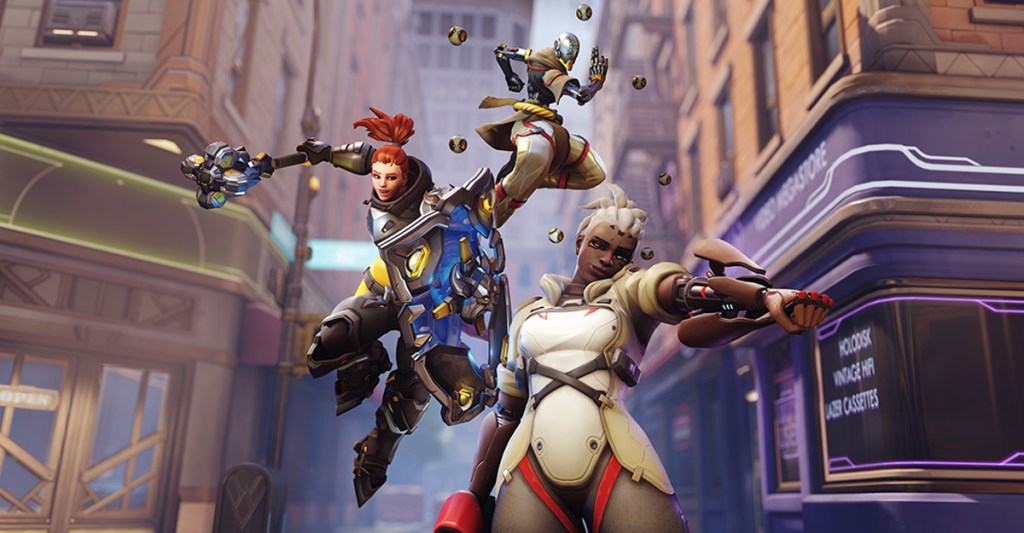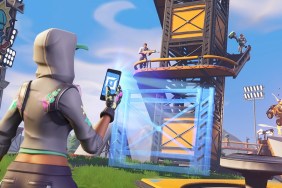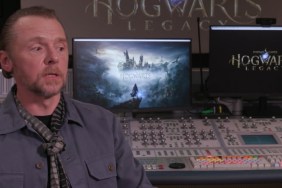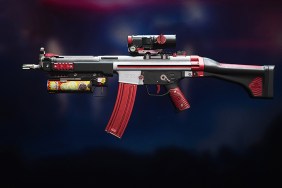Overwatch 2 is a weird sequel. Game developers almost exclusively want to go bigger and better with their follow-ups, but that distinctly isn’t the cast here. Blizzard has decided to scale things back to 5 vs 5 bouts over 6 vs 6, has only included three brand new characters, and has added just a smattering of new maps. It’s a controversial move and one that would be an incredibly tough sell if this was a full-priced game. But that’s the thing — Overwatch 2 isn’t a full-priced game.
Overwatch 2 is free-to-play and has launched in early access (even though Blizzard hasn’t widely advertised this fact). This allowed the developer to make moderate changes and tweaks that it couldn’t rightly ask players to pay full price for. It’s still controversial that it has been released in this state, with its PvE component — which was the focal point of its reveal back in 2019 — completely missing. However, it being free-to-play means that Blizzard can get away with focusing on improving the basics and little else.
More ‘Overwatch 1.5’ than Overwatch 2
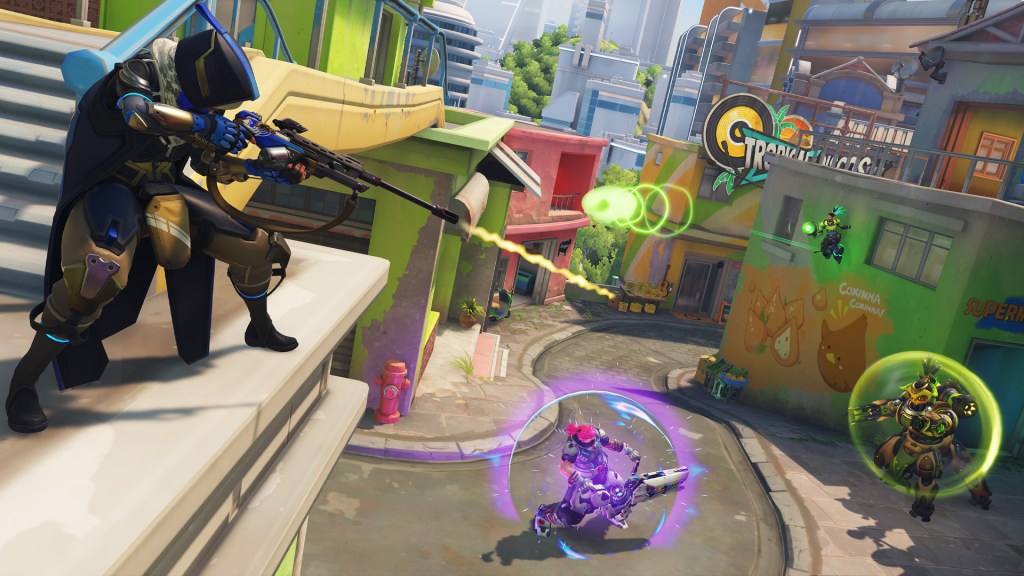
Overwatch 2 feels more like a meaningful update than a proper sequel — Overwatch 1.5 would be more appropriate. However, the changes made have resulted in a faster-paced and more fun experience than the original game had devolved into. For veteran Overwatch players like me who dropped off due to the cluttered state the original got itself into, this is pretty good news.
There’s an emphasis on dealing damage now, with tanks no longer reduced to shielding teammates or being hulking bullet sponges. They can now overtake traditional damage-dealers such as Reaper and Soldier 76, and feel more like leaders marching the rest of the team into battle rather than giant punching bags giving everyone a big hero to hide behind.
Each character has been remixed slightly to work with this faster pace, though only three characters have received a full rework — Doomfist, Bastion, and Orisa. Bastion has been switched from a mostly static turret to a mobile artillery cannon, Doomfist has been transformed into a tank who leaps into and then disrupts the enemy backline, and Orisa now gallops into action with a javelin that spears enemies into walls.
New heroes, new problems
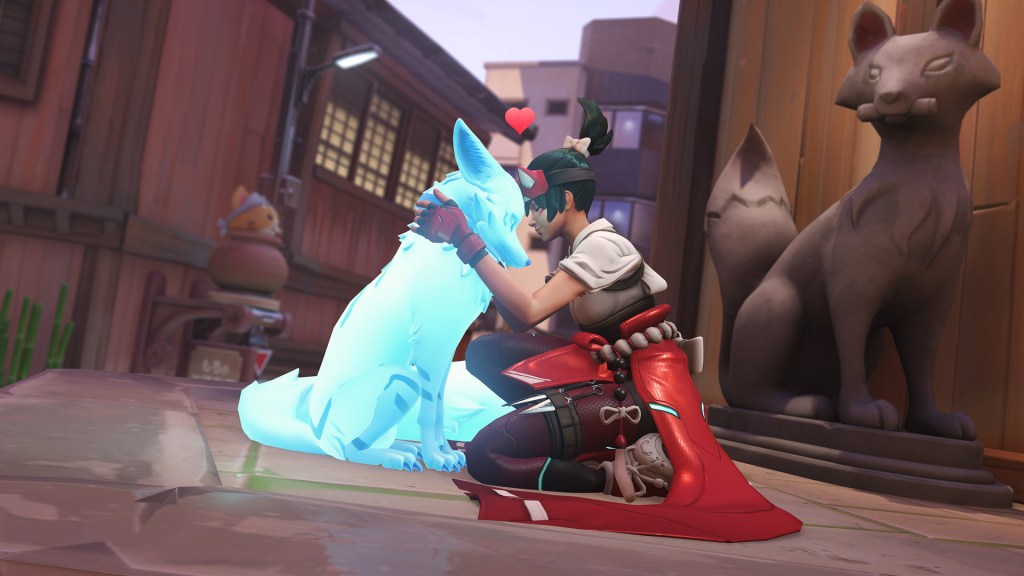
Then there are the three brand new characters, all of whom have abilities that prioritize rushing into battle, from the Junker Queen’s pump-action shotgun to Kiriko’s fox spirit summon that dramatically increases her teammates’ movement and attack speed. Kiriko, in particular, has been purpose-built for Overwatch 2, and as such feels world’s apart from the other supports in the line-up. It’s clear Blizzard knows she’s the star of the new line-up, too, with her being given the best skins while Sojourn and Junker Queen are left with dull cosmetics that feel only a slight step up from palette swaps.
But Blizzard pulling all of Overwatch’s heroes into Overwatch 2 hasn’t been a completely smooth transition. While the likes of Genji and Winston are thriving in this new environment, heroes who relied on a slower pace such as Cassidy and Hanzo are notably less useful. Now, not every character in a PvP multiplayer shooter is going to be as valuable as the next, but some of the changes made to these characters to try to make them fit in with this new playstyle feel hastily implemented.
Brigitte’s stun ability with her shield has been completely removed, Mei’s freeze gun no longer freezes, and Cassidy’s stick of dynamite is replaced with a magnetic grenade — not exactly the first weapon you’d associate with a cowboy. These alterations detract from these characters’ personalities, and given that a huge selling point of Overwatch is the distinctive traits of each hero, it’s a shame that Blizzard didn’t spend more time thoughtfully altering them to complement the sequel’s new focus.
Rushing the payload
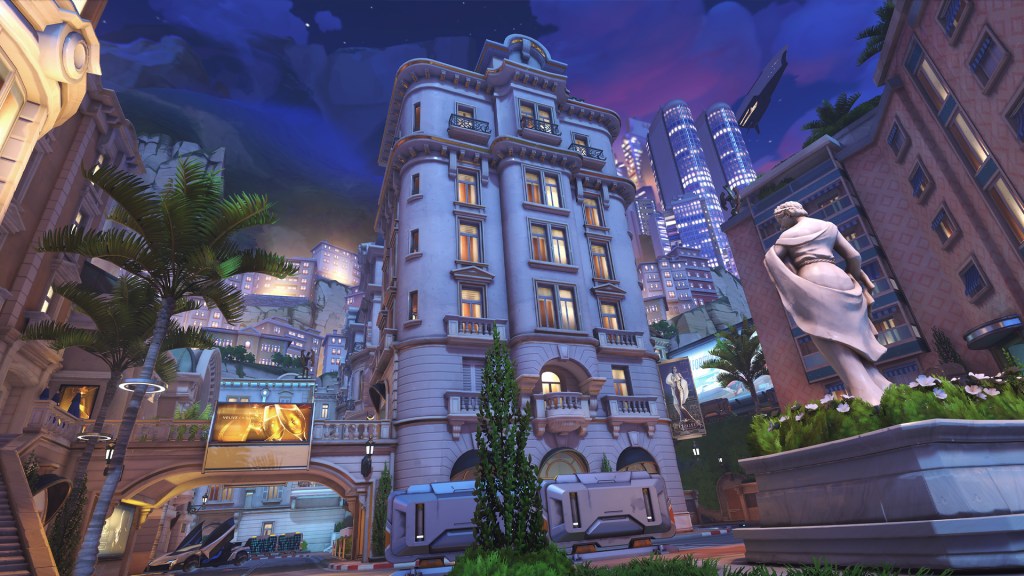
This feeling that Overwatch 2 was rushed out of the gate is present elsewhere, too. The new maps don’t hold a candle to the original game’s stages, which boasted exciting battlegrounds that also told a visual story with their design. There’s nothing here that rivals Eichenwalde, where players push a battering ram through a castle wall to Balderich von Adler’s slumped remains on its throne, or the domineering King’s Row, where London’s cobblestone streets are enveloped by towering sci-fi skyscrapers.
The lack of new hybrid maps is a result of a focus on the sequel’s new Push mode, which sees two teams battling it out to escort a robot to their opponents’ spawn area. Push mode forces players into more up-close-and-personal confrontations, which suits Overwatch 2 to a tee, with teamfights coming thick and fast. However, given that both sides of the map must roughly feature the same geometry in the interest of fairness, it doesn’t allow for much diversity in their landscapes. I’d have liked to have seen way more hybrid maps added to the rotation, but Overwatch 2’s stages feel like another victim of the game being rushed to launch.
While Blizzard may have overlooked Overwatch 2’s maps, it certainly hasn’t forgotten about monetizing its sequel. The original was a full-priced game stuffed with loot boxes, so although the move to free-to-play and the removal of those boxes in place of a Battle Pass is welcome, the pricing of in-game cosmetics is absurd. $39.99 will get you a half-assed bundle of old Overwatch skins, the grind to unlock items via gameplay is ridiculous, and to top it all off the cosmetics themselves feel rushed.
Weapon charms similar to Valorant have been added, but for characters who don’t hold traditional firearms, they just awkwardly dangle elsewhere — equip a charm to Sigma, Echo, or Kiriko and it’ll just clip to their hands. Souvenirs are just odd miscellaneous items such as pizza or an origami crane that float around your heroes in place of an emote, and worst of all, the new expensive Legendary skins for Sojourn, Kiriko, and Junker Queen are each much worse than their original designs.
It all adds up to create a sequel that takes the worst parts of a free-to-play release and unfortunately shoves them into a core gameplay experience that feels like a real return to form for Overwatch. I’ve greatly enjoyed my time with Overwatch 2 so far, and it really transported me back to when I couldn’t stop playing the original game. However, there’s no denying that it feels unfinished, unpolished, and is stuffed to the brim with cut corners and low-effort monetization attempts.
Final Verdict
Overwatch 2’s fast-paced action is an excellent change of pace from its predecessor’s shield-heavy gameplay, but a lack of new content and rushed release means this sequel doesn’t live up to Blizzard’s historically high standards.
Positives and Negatives
-
Damage-focused, fast-paced gameplay is tons of fun
-
Hero reworks are excellent
-
Kiriko is a great example of what a OW2-focused hero can bring to the table
-
Free-to-play
-
Monetization with ridiculous pricing
-
New maps are lackluster
-
Some hero changes feel like an afterthought
